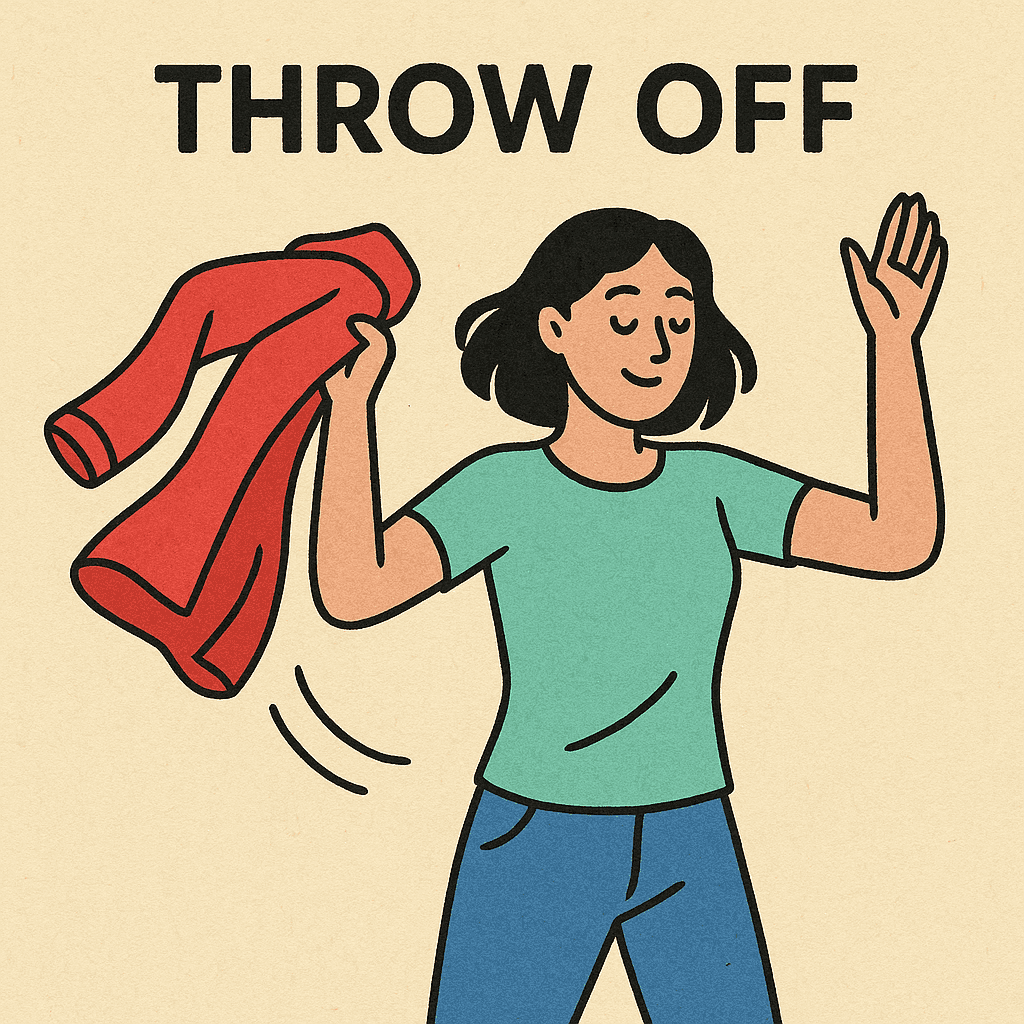Meaning
-
Throw off is a phrasal verb with several meanings:
- To remove something quickly or carelessly (e.g., clothes, a burden).
- To get rid of something unwanted (e.g., illness, habit, stress).
- To confuse or mislead someone.
- To produce something (less common usage).
Grammar and Usage
- Part of speech: Phrasal verb
- Verb type: Transitive (needs an object) or intransitive (depending on usage)
Typical patterns:
- throw off + noun → She threw off her jacket.
- throw sb off → The sudden question threw him off.
- throw off + illness/problem → He managed to throw off the flu.
Common Phrases
- throw off clothes
- throw off a cold
- throw someone off balance
- throw off stress
- throw off responsibility
Collocations
- Verb + object: throw off clothes, throw off suspicion, throw off doubts
- Adjective + noun: sudden move threw off balance, unexpected event threw off plans
Examples
- She quickly threw off her coat when she got inside the warm house.
- He’s trying to throw off his bad habits this year.
- The sudden question completely threw him off during the interview.
- The runner tried to throw off his pursuers by changing direction.
- It took him a few days to throw off the flu.
- Her comment threw me off balance, and I didn’t know how to respond.
- The project delays have really thrown off our schedule.
- Meditation helps me throw off the stress of daily life.
Synonyms or Related
- get rid of
- shed
- discard
- confuse
- baffle
- unsettle
Antonym
- take on
- accept
- keep
- hold on to
